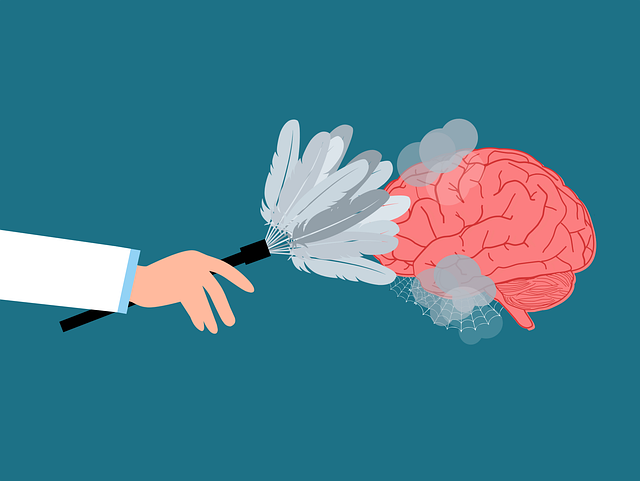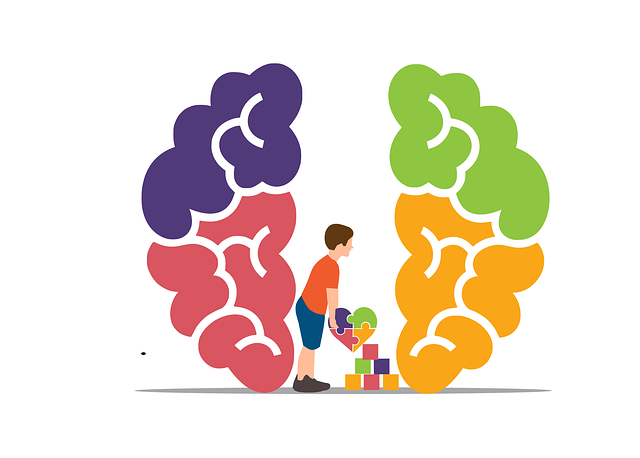Mental health crisis hotlines provide immediate support and guidance during emotional distress, offering compassion and tailored strategies from trained professionals. For individuals with Arvada Adjustment Disorder, these hotlines facilitate access to specialized therapy services that address life stressors and equip them with evidence-based tools for long-term recovery. By promoting cultural sensitivity, open communication, and mental health education, these resources empower people to overcome challenges and foster inner strength. Reaching out for help through hotlines or education programs is a vital step in managing and overcoming mental health crises.
Mental health crisis hotline support services play a pivotal role in addressing urgent psychological needs. In this article, we explore the critical function of these hotlines, focusing on how they provide immediate assistance and long-term solutions. We delve into the specific benefits of Arvada Adjustment Disorder Therapy, a specialized approach designed to help individuals navigate stressful situations. Additionally, we offer practical guidance on accessing and utilizing these support services effectively, emphasizing the importance of timely intervention and ongoing care.
- Understanding Mental Health Crisis Hotlines
- The Role of Arvada Adjustment Disorder Therapy
- Accessing and Utilizing Support Services Effectively
Understanding Mental Health Crisis Hotlines

Mental health crisis hotlines are vital support services designed to provide immediate assistance and guidance during intense emotional distress or mental health crises. These helplines offer a safe, confidential space for individuals struggling with various issues, from depression and anxiety to suicidal thoughts. Trained professionals on the other end of the line can offer compassion, active listening, and practical strategies tailored to each caller’s unique situation.
In cases of adjustment disorder, a common mental health challenge often stemming from significant life changes or stressful events, these hotlines play a crucial role in helping individuals develop emotional regulation skills and build inner strength. Arvada Adjustment Disorder Therapy, for instance, can be facilitated through hotline support, guiding persons towards creating effective self-care routines for better mental health management in the long term.
The Role of Arvada Adjustment Disorder Therapy

Arvada Adjustment Disorder Therapy plays a pivotal role in addressing the urgent need for mental health support. This specialized service is designed to help individuals grappling with adjustment disorders, offering them tools to navigate and overcome life’s challenges. Adjustment disorders are often triggered by significant stressors like major life changes, trauma, or loss, leading to feelings of anxiety, depression, and sometimes severe distress. The therapy focuses on cultivating inner strength through evidence-based practices tailored to each individual’s unique needs.
Incorporating cultural sensitivity in mental healthcare practice is a key aspect of Arvada Adjustment Disorder Therapy. By understanding and respecting diverse cultural backgrounds, therapists can create a safe and inclusive environment. This approach not only enhances the therapeutic process but also ensures that individuals from various ethnic, racial, or religious groups receive culturally competent care, fostering better engagement and positive outcomes. Moreover, mental health policy analysis and advocacy are crucial elements to improve access to such services, ensuring everyone has the opportunity to build their inner strength and recover.
Accessing and Utilizing Support Services Effectively

Accessing support services for mental health crises is a crucial step towards recovery and well-being. Many individuals, especially those dealing with adjustments like Arvada Adjustment Disorder, may find themselves overwhelmed and unsure where to turn. The first step is recognizing when you or someone close needs help; understanding common triggers and symptoms can facilitate this process. Hotline services are designed as immediate resources, offering confidential support and guidance. They connect individuals to appropriate local services, ensuring easy access to therapists, counseling centers, and crisis intervention programs.
Effectively utilizing these services involves being open about your experiences and emotions. It’s beneficial to describe situations, triggers, or symptoms that lead to a crisis. Therapists and counselors are trained to listen and provide tailored support, often incorporating evidence-based practices like Mind Over Matter principles or Compassion Cultivation Practices. Mental Health Education Programs designed for crisis intervention empower individuals with coping strategies, fostering resilience and self-management skills. Remember, reaching out is a sign of strength, and these services exist to provide the necessary tools for navigating through challenging times.
Mental health crisis hotline support services play a vital role in assisting individuals navigating turbulent times. By providing immediate, confidential assistance, these hotlines offer a safe space for those struggling with anxiety, depression, or other mental health challenges. Integrating services like Arvada Adjustment Disorder Therapy ensures tailored support, fostering effective coping strategies and promoting long-term well-being. Remember that accessing these resources is a proactive step towards better mental health, and utilizing them effectively can be life-changing.














